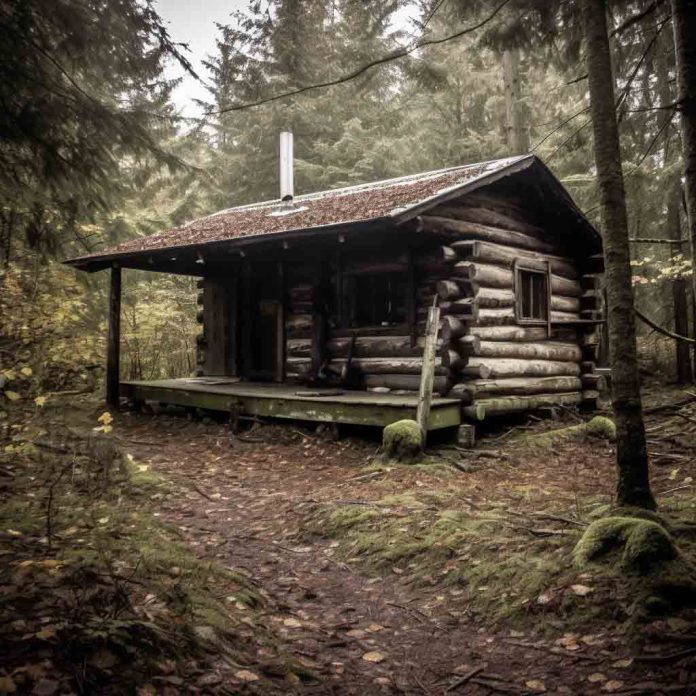Off-Grid Living 101:
In a world that grows increasingly dependent on modern conveniences and centralized systems, the allure of going off-grid is gaining momentum.
The desire for self-sufficiency, sustainability, and a simpler way of life has prompted many individuals to explore the possibility of disconnecting from the grid.
Going off-grid is more than just a physical transition; it is a mindset shift towards greater autonomy, resilience, and harmony with nature.
If you are ready to embark on this transformative journey, this comprehensive guide will provide you with valuable insights, practical tips, and actionable steps to help you go off-grid.
Define Your Off-Grid Goals
Before taking the leap, it is crucial to define your off-grid goals. Reflect on your motivations, values, and lifestyle preferences.
Do you aim for greater self-sufficiency in terms of food, energy, or water?
Are you seeking a closer connection with nature and a simpler way of life?
Understanding your objectives will shape your off-grid journey and guide your decision-making process.
Assess Your Resources and Skills
Evaluate your current resources and skills. Assess your available land, water sources, climate, and access to natural resources.
Identify your strengths and areas where you might need to acquire new skills or knowledge.
This self-assessment will help you determine the level of self-reliance you can achieve and identify any potential limitations or challenges.
Start with Small Steps
Transitioning to an off-grid lifestyle is a significant endeavor, and it is wise to start with small steps.
Begin by making sustainable changes in your daily life, such as reducing energy consumption, conserving water, and embracing eco-friendly practices.
This gradual approach allows you to adapt and learn along the way while building confidence in your ability to live off-grid.
Create an Off-Grid Plan
Develop a comprehensive off-grid plan tailored to your specific needs and circumstances.
Determine the key aspects to address, such as energy generation, water management, food production, waste disposal, and shelter.
Consider the available off-grid technologies and solutions that align with your goals and explore alternative options that suit your budget and resources.
Generate Your Own Energy
Energy independence is a fundamental aspect of off-grid living. Explore renewable energy sources such as solar panels, wind turbines, or micro-hydro systems to generate your own power.
Evaluate your energy needs and design a system that can provide electricity for your essential appliances, lighting, and other requirements.
Manage Water Resources
Water is a precious resource, and off-grid living necessitates effective water management. Implement rainwater harvesting systems, install water filtration and purification systems, and consider water conservation practices.
Explore sustainable solutions like graywater recycling and utilizing composting toilets to minimize water usage and maximize efficiency.
Embrace Sustainable Food Production
Growing your own food is a cornerstone of self-sufficiency. Embrace sustainable food production methods such as organic gardening, permaculture, and aquaponics.
Cultivate a diverse range of fruits, vegetables, and herbs, and consider raising livestock or poultry for eggs and meat.
Preserve your harvest through canning, fermenting, and other food preservation techniques.
Build Your Off Grid Cabin, Tiny House or Survival Shelter
Create a resilient and sustainable shelter that harmonizes with your environment. Consider eco-friendly construction materials, energy-efficient design, and passive heating and cooling techniques.
Explore alternative building methods like straw bale, earthship, or tiny house construction that align with your off-grid values.
Develop Essential Skills
Building a self-sufficient life requires a broad range of skills. Learn essential skills such as gardening, food preservation, woodworking, basic plumbing and electrical work, and first aid.
Acquire knowledge in renewable energy systems, permaculture principles, natural building techniques, and sustainable resource management.
Embrace a lifelong learning mindset to continuously expand your skill set.
Embrace a Community and Seek Support
Off-grid living does not mean complete isolation. Embrace community connections and seek support from like-minded individuals who share your values.
Engage in local off-grid or homesteading communities, attend workshops or gatherings, and participate in skill-sharing events.
Building a network of supportive individuals will enhance your off-grid journey and provide valuable resources and knowledge.
It’s All About Freedom & Independence
Going off-grid is an empowering and transformative decision that allows you to reclaim your independence, embrace sustainability, and live closer to nature.
By defining your goals, assessing your resources, and taking small steps towards self-sufficiency, you can embark on a fulfilling off-grid journey.
Embrace the freedom and resilience that comes with living off-grid, and savor the rewards of a simpler, more sustainable way of life.

